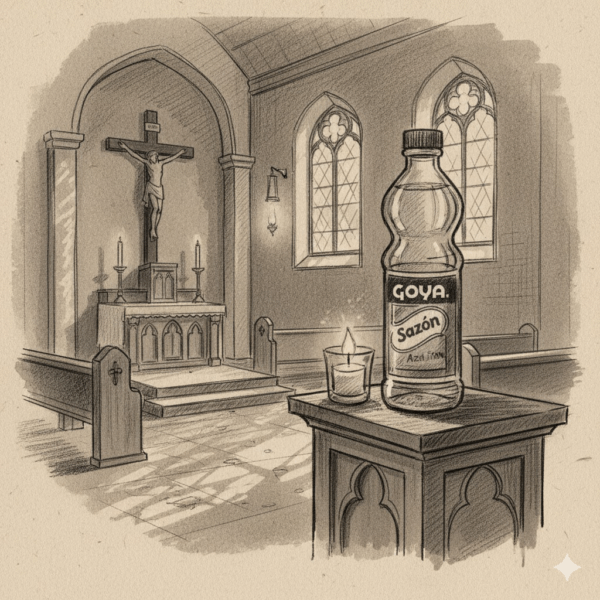GOYA Olive Oil arrived in Nigeria as a premium imported cooking oil, built around a Spanish heritage and culinary roots. Over time the product silently entered an entirely different sphere, in Nigeria’s churches today the blue and gold bottle is more than just a kitchen item, it is used widely as an anointing oil, part of spiritual rituals, not because the brand designed it that way, but because consumers shaped its role. According to a feature in Marketing Edge, GOYA didn’t launch a campaign to be holy, it simply built trust through consistent appearance, standard packaging and perceived purity, and Nigerian congregations repurposed it into a symbol of faith and ritual.
The transition matters for business observers because it shows how a fast moving consumer goods brand can move beyond its original function to become a cultural artefact. The value drivers here are not just price or promotion, but cultural embedding and emotional trust. GOYA’s imported status and design coherence allowed it to gain traction in niches where trust is paramount, such as church altars, so Nigerian marketers and investors should note how symbolic positions may create new demand vectors.
On the regulatory front, the global owner, Goya Foods Incorporated, has pushed legal action to protect its trademark in Nigeria. In July 2024 the company sued the Registrar of Trademarks via the Federal High Court in Abuja, seeking enforcement of a 2006 consent judgement that assigned the GOYA Olive Oil mark exclusively to the company. The case points to underlying risks of brand import dependency, intellectual property exposure and grey market distribution, issues critical when a brand’s value extends into non-traditional usage contexts.
From a market perspective GOYA’s new role suggests multiple business implications. First, imported premium goods that gain symbolic meaning may command resilience in inflationary markets if the consumer perceives emotional or ritual value. For instance one Nigerian retail site lists GOYA Extra Virgin Olive Oil, 500ml, at about N5,410. Second, the brand’s move into ritual usage may alter consumption patterns, one bottle used in worship has very different turnover from one used daily for cooking. Third, local competitors may seek to replicate the ritual angle, reducing GOYA’s uniqueness, meaning the brand must continue to protect its visual identity and premium status.
GOYA remains reliant on import logistics, foreign currency movements and distribution networks in Nigeria. Any disruption in those areas could affect availability or pricing. Also, as the product straddles food and faith contexts, regulatory scrutiny could increase around labelling or claims of anointing benefit. Investors and consumer goods strategists must monitor how the category evolves, especially if local manufacturing or substitution begins to emerge.









